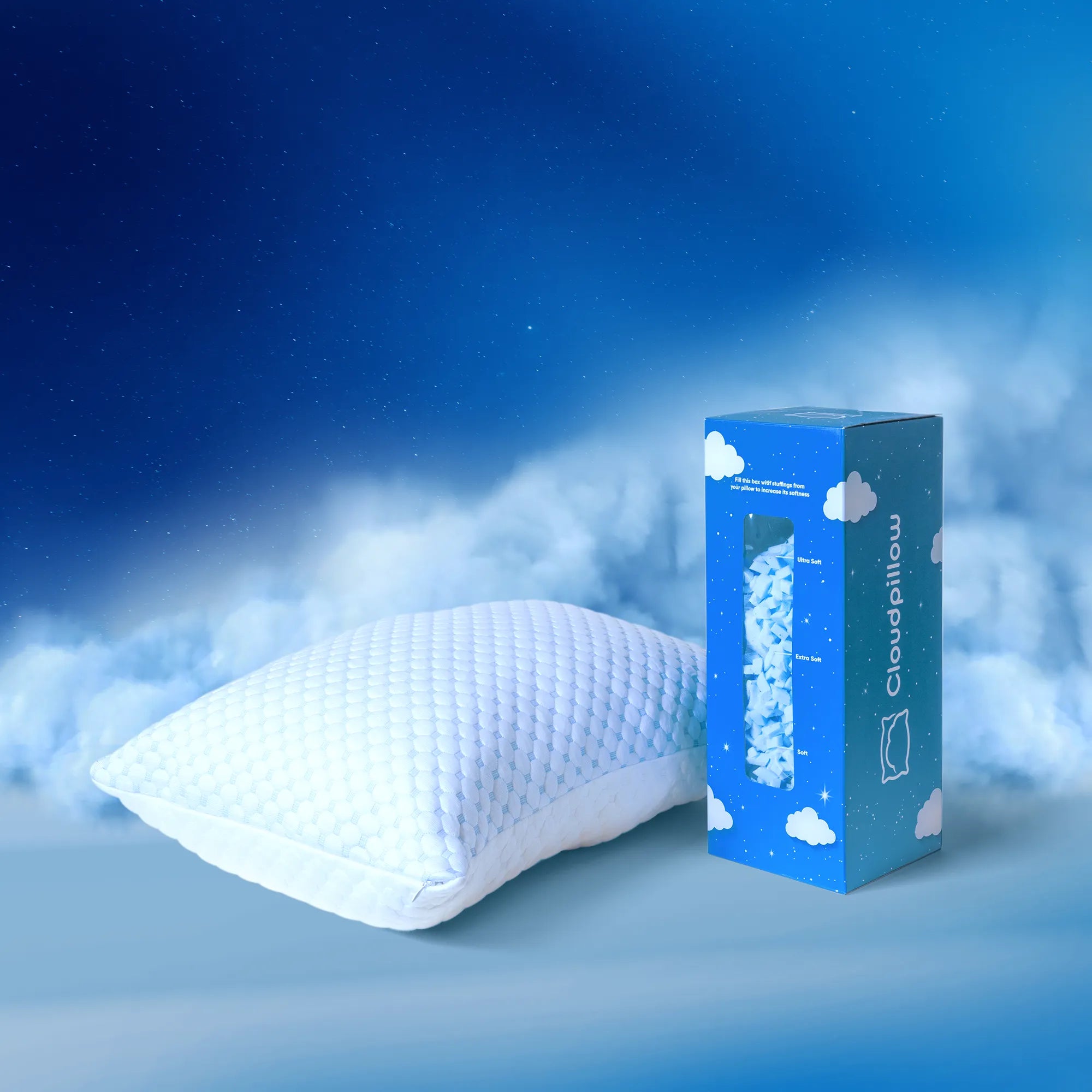How long should you use a memory foam pillow?

When it comes to getting a good night's sleep, comfort is key. Memory foam pillows can adapt to take your shape, which is its most well-known quality, making you more comfortable and at ease while you sleep. As a result, you can kiss your back, neck, and shoulder pain goodbye.
But how long should you use a memory foam pillow? A memory foam pillow has a lifespan of two to three years and even five. It depends on various factors, the most crucial of which is the kind of foam padding used for the filling. In this blog, we’ll discuss the benefits of memory foam pillows and talk about Cloudpillow, the most effective and durable memory foam pillow on the market.
What is a Memory Foam Pillow
Memory foam pillows are made of a special foam material that contours to the shape of your head and neck for better support. This unique material is designed to provide comfort and support while still being able to maintain its shape over time. These pillows are filled with shredded memory foam, allowing them to conform to the shape of your head and provide full support for your body structure and head.
The unique properties of memory foam make it feel like you're sleeping on a cloud, providing a comfortable and restful sleep while relieving you from upper back and neck pain and promoting better quality sleep.
How Long Does a Memory Foam Pillow Last?
A memory foam pillow can last for up to five years. Foam headrests can only last five years, according to manufacturers and industry specialists that specialize in home accessories.
Reasons why you should replace your pillow
- Promotes better hygiene
- Can be the cause of your pain
- A breeding place for dust mites
- Can be causing allergic reactions
Tips for making your pillow last longer
- Employ a pillowcase so that the pillow absorbs none of your body fluids, including sweat, saliva, and hair.
- If you want to keep sweat, body oils, and dead skin from getting on your pillow, think about using a pillow protector.
- Wash your protector, pillow, and cover frequently. While covers and protectors can be washed regularly or multiple times each week, pillows should be washed at least every two months.
- To keep your pillow smelling clean and new, air it once a week.
- Keep your pillow away from heat since heat causes most memory foam cells to break down and disintegrate. Instead, let it dry naturally in the sun or hasten the process with a fan.
Introducing Cloudpillow
Cloudpillow is a fully adjustable memory foam pillow designed to provide superior comfort and support for restful sleep. The adjustable feature allows you to customize the amount of fill in the pillow to achieve the perfect level of comfort and support for your head and neck.
Cloudpillow is fully customizable by removing/adding high-grade memory foam to adjust it to your comfort. This is perfect for all types of sleepers, whether you prefer sleeping on your side, stomach, back or mix. Many users have claimed that Cloudpillow has improved their sleep quality significantly.
Additionally, it allows for proper ventilation and clean air flow, making it an excellent option for health and hygiene. This prevents your pillow from becoming overheated and sticky, especially in the summer.
How Long Can You Use Cloudpillow?
Memory foam pillows should be replaced every few years. However, it’s recommended that you replace your memory foam pillow every 3-5 years or notice signs of wear and tear. If you use the Cloudpillow's cooling pillow, you may extend the pillow's life by replacing the fill.
Conclusion
Getting a good night's sleep is essential for both physical and mental health, so finding the right pillow is key. Memory foam pillows provide superior comfort and support for a restful sleep, helping to reduce neck and back pain when sleeping. With the adjustable feature of Cloudpillow, you can customize the amount of fill in the pillow for the perfect level of comfort and support for your head and neck.
AUTHOR DETAILS

Dr. Martin Gilbert
Dr. Martin Gilbert, a renowned sleep expert, is respected for his advanced research and insightful commentary on the latest findings in sleep science. He has specialized in sleep disorders and the effect of lifestyle choices on sleep quality.
Summary






